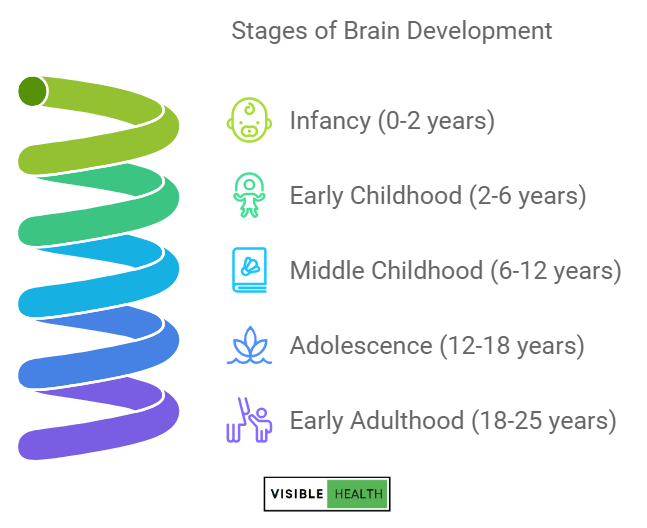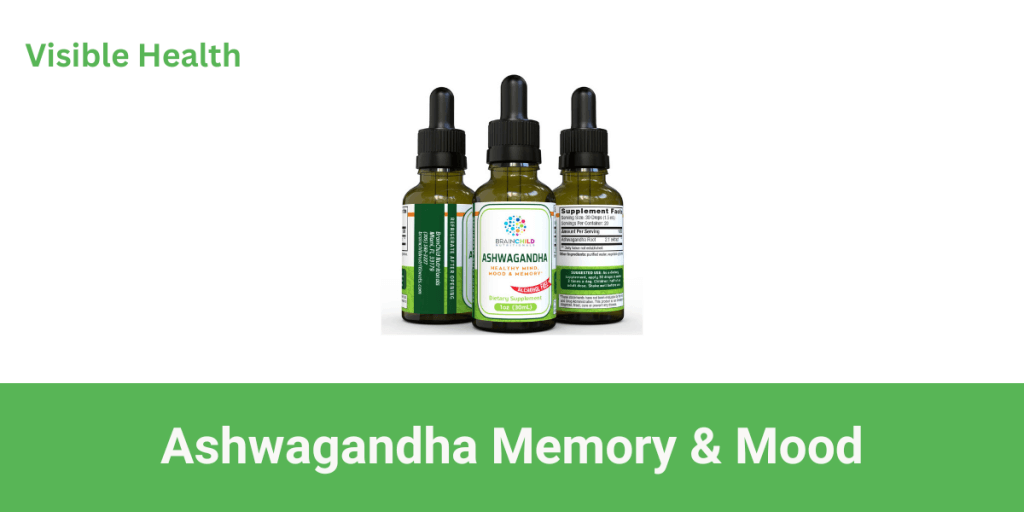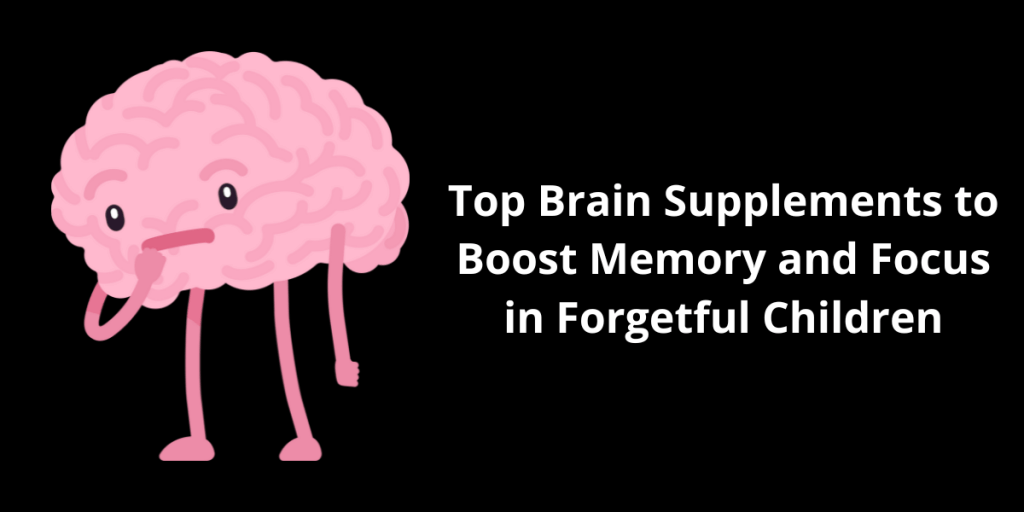Brain supplements improve memory and focus in forgetful children by providing essential nutrients that support cognitive function. To boost memory and focus in forgetful children, you should consider incorporating specific nutrients and supplements into their diet. Omega-3 fatty acids, particularly DHA and EPA, are essential for developing and maintaining healthy brain function, improving attention and reducing hyperactivity. Vitamins D and B12, magnesium, and zinc are also vital for maintaining healthy neural tissues and supporting cognitive development. For example, supplements like Ashwagandha Organic Extract, which combine Omega-3 fatty acids with other key nutrients, can help support brain health and cognitive function. By understanding these essential nutrients, you can take the first step towards enhancing your child’s cognitive development and laying the foundation for a lifetime of effective learning and problem-solving abilities. Discovering more about these supplements and their benefits can help you make informed decisions to support your child’s cognitive growth.
How Do Memory and Focus Impact Children?
Memory and focus form the foundation of a child’s learning process, influencing their academic success, emotional well-being, and social interactions.
Effective memory retention and focus are essential for cognitive development, enhancing the child’s ability to absorb and process information efficiently. Strong cognitive skills, such as information processing and recall, are necessary for peak learning capacity.
Mental clarity plays a pivotal role in children’s learning and academic performance, as it enables them to understand and retain information more effectively. For example, children with better focus and memory skills can manage their schoolwork more effectively, leading to improved academic outcomes and emotional stability.
Cognitive development, driven by memory and focus, is fundamental for building a strong foundation in learning, problem-solving, and emotional management.
How Does Cognitive Development Progress in Children?
Cognitive development in children progresses through several key stages, each marked by significant milestones in brain maturation and functionality.
As your child grows, their brain undergoes rapid changes, especially between birth and age three, with neural connections formulating at an incredible rate, laying the groundwork for future cognitive skills.
For example, around age two, children begin to exhibit more complex problem-solving abilities, while by age five, they start to demonstrate improved memory retention and focus, highlighting the dynamic nature of their cognitive development.
What Are the Stages of Brain Development?
As your child grows, their brain undergoes significant developmental stages that impact their cognitive abilities.
For example, during early childhood (ages 2-6), children face challenges such as learning to control their impulses and develop problem-solving skills, while older children (ages 7-12) may struggle with working memory and multitasking.

Understanding these stages and challenges can help you identify when interventions, including nutritional support and brain supplements, may be beneficial to support their cognitive and brain health.
What Common Cognitive Challenges Do Children Face?
The journey of childhood is marked by a series of profound cognitive transformations that shape a child’s ability to think, learn, and interact with the world.
Struggling learners often face cognitive gaps and learning barriers, such as attention deficits and cognitive weaknesses, which can impede their development.
Key challenges include difficulty with focus, memory retention, and information processing, affecting 8-10% of children with significant cognitive gaps.
How Does Nutrition Affect Cognitive Function?
Nutrition plays a pivotal role in cognitive function, substantially impacting brain health through the types and amounts of nutrients consumed.
For example, omega-3 fatty acids (DHA and EPA) are essential for developing and maintaining healthy brain function, supporting improved attention and reduced hyperactivity in children.
However, many children fall short of the recommended daily intake of these critical nutrients, making dietary supplements like multivitamins an important consideration to fill these nutritional gaps.
In What Ways Does Nutrition Impact Brain Health?
Nutrition plays a vital role in impacting brain health in children, profoundly affecting cognitive function.
Key nutrients critical for cognitive development include omega-3 fatty acids, particularly DHA and EPA, which support neural tissue growth and improve attention and cognitive function.
Additionally, vitamins such as B12 and D, as well as minerals like magnesium and iron, are essential for maintaining healthy brain function, promoting nerve repair, and enhancing memory and focus.
What Key Nutrients Are Critical for Cognitive Development?
As your child grows and develops, it’s essential that they receive the necessary nutrients to support their cognitive function and overall brain health.
Critical nutrients include Omega-3 fatty acids (DHA and EPA), which enhance focus and learning, Vitamin D for neural tissue growth, B vitamins (B12) for nerve repair and memory, and magnesium for calm and focused brains.
Deficiencies can lead to learning disorders and cognitive impairments.
What Are the Top Brain Supplements for Children?
You’re looking for the top brain supplements for children, and the key options include Omega-3 fatty acids, essential vitamins, and minerals.
Specifically, Omega-3 fatty acids, particularly DHA and EPA, are well-documented for their ability to support cognitive function, enhance focus, and improve overall brain health in children.
In addition, essential vitamins like Vitamin D and B vitamins (especially B12) play significant roles in maintaining healthy neural tissues and supporting cognitive development.
1. Omega-3 Fatty Acids
Parents seeking to boost their child’s cognitive abilities often turn to omega-3 fatty acids, which are essential for brain development and function.
These fatty acids, particularly EPA and DHA, are found in fatty fish, nuts, and seeds, and play a vital role in brain function, including learning and memory. Omega-3 deficiency has been linked to various cognitive issues, including ADHD and poorer academic performance.
Supplementing with omega-3 fatty acids, such as fish oil, can provide numerous benefits, including improved brain function and mood, as well as enhanced learning and memory abilities.
For ideal benefits, it’s recommended to consult with a healthcare professional to determine the appropriate dosage, typically ranging from 120-1,300 mg of combined DHA and EPA per day.
2. Essential Vitamins
Beyond omega-3 fatty acids, essential vitamins play a fundamental role in supporting children’s brain health and development.
Vitamins B6 and B12 are particularly important as they aid in the synthesis of neurotransmitters and maintenance of nerve function, influencing mood, memory, and cognitive performance.
Vitamin deficiencies can hinder brain function and mental clarity, making it imperative to guarantee adequate intake of these essential nutrients.
Vitamin supplements designed for children can help fill nutritional gaps, especially for picky eaters or those with restricted diets.
For example, vitamin B6 supports the synthesis of serotonin, a neurotransmitter linked to mood regulation, while vitamin B12 is essential for nerve function and myelin sheath formation, facilitating efficient signal transmission.
3. Minerals
Teeming with nutrients, a balanced diet is essential for nurturing children’s growing brains.
However, many kids don’t get enough essential minerals from their food, making supplements pivotal.
Magnesium benefits brain function by supporting neural activity and cognitive development. A deficiency can lead to impaired focus and memory.
Similarly, Iron deficiency, common in children, can cause fatigue, affecting learning and concentration.
Zinc supplements are also important for brain health, as zinc helps regulate neurotransmitters and synaptic function.
Additionally, Copper effects include supporting the production of melanin and dopamine, while Manganese importance lies in its role in bone and tissue health, indirectly benefiting brain development.
Ensuring adequate intake of these minerals through supplements can dramatically boost a child’s memory and focus abilities.
A healthcare provider should be consulted to determine the best course of supplementation.
Regular checks can help identify any deficiencies early on.
4. Ashwagandha Organic Extract
Ashwagandha organic extract is another key supplement that supports children’s brain health.

Originating as a shrub native to India and North America, ashwagandha has been used in ayurvedic medicine to energize the body and improve memory.
It’s known as an adaptogen, helping the body deal with stress by balancing fatigue and nervous exhaustion, and calming an agitated or stressed mind.
Listed below are the Key benefits of ashwagandha memory supplement.
- Cognitive support: Boosting memory and focus.
- Joint support: Enhancing overall joint health.
- Anti-inflammatory support: Reducing inflammation.
Important Notes:
- Ashwagandha precautions: Not recommended for pregnant women. Consult a practitioner if taking sedatives or anti-anxiety drugs.
- Ashwagandha ingredients: Organically grown Ashwagandha 2:1 Extract, purified water, and Kosher vegetable glycerine.
- Ashwagandha dosage: For children, start with one drop, 3 times a day, and gradually increase to half the adult dose of 15 drops. Take with a meal for better absorption.
What Natural Alternatives to Supplements Exist for Enhancing Memory and Focus?
You can enhance your child’s memory and focus without relying solely on supplements by incorporating specific brain foods into their diet and making lifestyle adjustments.
Foods rich in omega-3 fatty acids, such as salmon and walnuts, as well as those high in antioxidants like blueberries and spinach, can support cognitive health.
Additionally, encouraging regular physical activity, adequate sleep, and engaging in mentally stimulating activities, like reading and puzzles, can also contribute to improved memory and focus.
Brain Foods
A nutritious diet rich in specific foods can play a crucial role in enhancing memory and focus, offering a natural alternative to supplements.
By making informed food choices, you can provide your child with the necessary nutrients for peak brain function. Include healthy snacks like nuts and seeds, which are packed with essential fatty acids and antioxidants that support cognitive development.
Whole grains, such as oats, provide sustained energy and contain B vitamins that aid in neurotransmitter production and auditory attention.
Incorporate brain-boosting foods like fish, eggs, and beans into their diet.
Fish is a rich source of omega-3 fatty acids, while eggs are high in choline, which is essential for memory and brain function.
Beans offer a combination of protein, complex carbohydrates, and fiber, making them an excellent energy source for the brain.
Lifestyle Factors
Effective memory and focus enhancement in children often extend beyond diet and supplements.
Lifestyle factors play a vital role in supporting cognitive development and improving concentration.
Listed below are the critical areas to consider.
- Screen time and electronic addiction: Limit excessive screen use, as it can hinder children’s ability to focus and may lead to cognitive overload.
- Busy schedules: Guarantee adequate downtime to allow for mental recovery and avoid overexertion.
- Lack of sleep: Prioritize proper sleep hygiene for children, aiming for 8-12 hours of sleep per night, to support memory consolidation and focus.
- Sedentary lifestyle: Promote active play and physical activity to boost brain function and overall health.
What Are the Common Nutritional Deficiencies in Children That Affect Cognitive Function?
Common nutritional deficiencies in children that affect cognitive function often include a lack of omega-3 fatty acids and vitamin D.
You should be aware that deficiencies in these nutrients can lead to impaired attention and memory in children. For example, studies have shown that omega-3 supplements, particularly DHA and EPA, can improve attention in children by enhancing brain development and cognitive function, making them essential vitamins for memory enhancement.
How Do Omega-3 Fatty Acids Improve Attention in Children?
Multiple studies have shown that omega-3 fatty acids can substantially improve attention in children, particularly those diagnosed with Attention Deficit Hyperactivity Disorder (ADHD).
The benefits of these fatty acids include enhancing brainpower, boosting attention span, and providing neurological support.
Research indicates that supplementation with omega-3 fatty acids, particularly EPA and DHA, can reduce symptoms of inattention and hyperactivity in children with ADHD.
A systematic review and meta-analysis found that omega-3 supplementation improves ADHD clinical symptom scores and cognitive measures associated with attention.
For instance, studies have shown that doses of 650-1,300 mg of combined EPA and DHA per day can markedly improve attention in children with ADHD.
What Are the Best Vitamins for Enhancing Memory in Children?
Enhancing memory in children is essential for their cognitive development, and addressing nutritional deficiencies plays a pivotal role in achieving this goal.
Smart vitamins like omega-3 fatty acids, vitamins B12, D, and E, are imperative for brain strengthening and young recall.
Omega-3 fatty acids, particularly DHA and EPA, support brain function and have been linked to improved attention and cognitive performance.
Vitamins B12, D, and E are also indispensable for overall brain health and have been associated with better cognitive function and memory recall.
Incorporating these nutrients into a child’s diet can substantially enhance their mind development and memory capabilities.
For instance, foods rich in omega-3 fatty acids include fish like salmon and mackerel, while vitamins B12, D, and E can be found in fortified cereals, fish, and vegetable oils.
What Are the Best Attention Supplements for Hyperactive Child?
Traversing the complex world of ADHD supplements can be overwhelming, especially when searching for the best attention supplements for a hyperactive child.
To help you navigate this, some supplements stand out for their effectiveness in managing ADHD symptoms.
Natural calmers like Magnesium and Omega-3 Fatty Acids are known to reduce hyperactivity and improve focus.
Magnesium, in particular, helps in regulating neurotransmitter synthesis and calming the central nervous system, making it an effective attention booster.
Omega-3 Fatty Acids support brain health and enhance cognitive functions, acting as focus enhancers and hyperactivity aids.
Other supplements like Zinc and Vitamin D also play vital roles in supporting brain health and neurotransmitter regulation, acting as brain stimulants to enhance attention.
When choosing supplements, it’s essential to consult with a healthcare professional to guarantee safety and efficacy.
Affiliate Disclosure: Some of the links in this post are affiliate links, which means I may earn a small commission if you make a purchase through those links. This comes at no extra cost to you. Thank you for your support!

